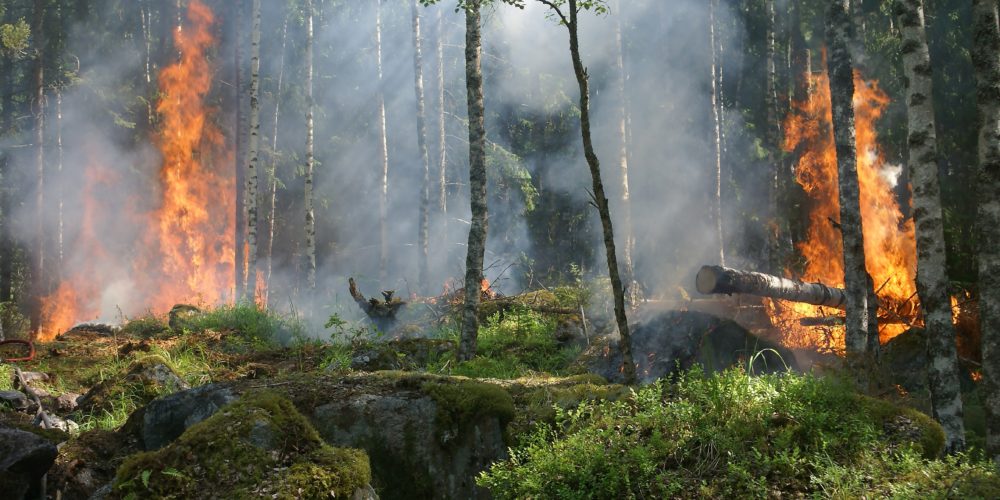We are in this mess because of our assaults on nature

Before 2020 I did not, I am ashamed to admit, really know what a virus was.
I knew a little bit, certainly. I knew that viruses are bugs that seem to come out of nowhere; I knew that they cause some terrible diseases; I knew that antibiotics don’t work on them and we really just rely on the human body’s own immune defence mechanisms to counter them.
In 2020, thanks to the awful coronavirus, I know a whole lot more.
Viruses are barely alive. They are, in a phrase attributed to the Medawars, a husband-and-wife team of biologists, “bad news wrapped in protein.” They float around in nature, usually doing little harm. The bad news begins when they are able to enter human bodies and hijack living cells. Then, they replicate and spread and in the process do great harm to their hosts.
If you want to read a single book that explains the state of the world with regard to infectious disease, that has to be David Quammen’s Spillover. It is both rigorous and readable, and provides the essential education we all need. The author tells us that infectious disease is all around us; that it is a natural process. The problem comes when pathogens leap unnaturally from animals to humans and manage to become an infectious presence in the human world.
Then, as we have discovered, all hell can break loose.
Many diseases are of zoonotic origin. Ebola, the bubonic plague, the many influenzas, AIDS – all reached humans through some ‘spillover’ events involving a species jump. Most pathogens lurk within some natural animal host where they cause little illness. But when we cause ecological disturbance, the pathogens jump.
Zoonotic viruses are just one type of such pathogen, but they are the most problematic. In Quammen’s words: “They evolve quickly, they are unaffected by antibiotics, they can be elusive, they can be versatile, they can inflict extremely high rates of fatality…” Virologist Stephen Morse told us, “Viruses have no locomotion, yet many of them have travelled around the world.” Quammen makes it even more evocative: viruses “can’t run, they can’t walk, they can’t swim, they can’t crawl. They ride.”
And so the latest zoonotic virus, the novel coronavirus, emerged where it did and entered a human body. From there it passed via droplets emitted by that human to other humans; and then got onto airplanes riding on those humans; and so, replicating and being transmitted rapidly, established itself all around the world.
Now that we are paying attention, we note a pattern. Over the past fifty or so years humans have encountered a whole procession of zoonotic pathogens, including Ebola, HIV, avian flu, swine flu, SARS, MERS – and now, the big daddy of them all, SARS-CoV-2. Quammen, writing in 2012, knew this one was coming: “When the Next Big One comes, we can guess, it will likely conform to the same perverse pattern, high infectivity preceding notable symptoms. This will help it to move through cities and airports like an angel of death.”
Those who knew, knew.
Why now, though? Because of us. We are putting nature under more and more pressure. Because of the way we humans have organized our world, we have convinced ourselves we can only grow at the expense of nature. A combination of greed and poverty means we keep pushing the boundaries. We keep encroaching and deforesting, denuding and polluting. As natural habitats are usurped and destroyed, nature bites back. As we intrude into areas previously left untouched, we encounter new viruses, unknown to science. And then they jump. When we kill their natural hosts, we become their new hosts.
We have been using advanced technology to attack nature; and using advanced technology to move ourselves around the world quickly and cheaply. And so we have created the perfect conditions for zoonoses to attack us right back. And unless we reboot, this will keep happening.
On 29 December 2019 I wrote on this page: “…as a New Year dawns, perhaps we should each take stock. Are we protectors of nature, or its destroyers? What do we do, individually and resolutely, to ensure that no lasting damage is done in our name? What is our contribution to honouring our mother?”
I was appealing to our sense of nobility as a species. Little did I know that nature had its own terrible lesson planned. Perhaps we humans only learn to be respectful and reverential of something bigger than us when that thing shows its fury and brings us to a grinding halt.
Finally, let us bow our heads and learn how to live in peace with our fellow inhabitants on this planet.
(Sunday Nation, 19 July 2020)

Buy Sunny Bindra's new book
The X in CX
here »
Popular Posts
- The pause that saves usJune 8, 2025
- Where are you rushing to—your funeral?June 29, 2025
- How to spot a real thinkerJune 15, 2025
- Built the app, forgot the flowJune 22, 2025
- The first push is the hardestJune 1, 2025















